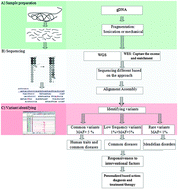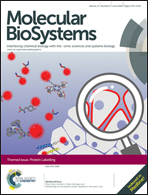Next generation sequencing: implications in personalized medicine and pharmacogenomics
Abstract
A breakthrough in next generation sequencing (NGS) in the last decade provided an unprecedented opportunity to investigate genetic variations in humans and their roles in health and disease. NGS offers regional genomic sequencing such as whole exome sequencing of coding regions of all genes, as well as whole genome sequencing. RNA-seq offers sequencing of the entire transcriptome and ChIP-seq allows for sequencing the epigenetic architecture of the genome. Identifying genetic variations in individuals can be used to predict disease risk, with the potential to halt or retard disease progression. NGS can also be used to predict the response to or adverse effects of drugs or to calculate appropriate drug dosage. Such a personalized medicine also provides the possibility to treat diseases based on the genetic makeup of the patient. Here, we review the basics of NGS technologies and their application in human diseases to foster human healthcare and personalized medicine.


 Please wait while we load your content...
Please wait while we load your content...